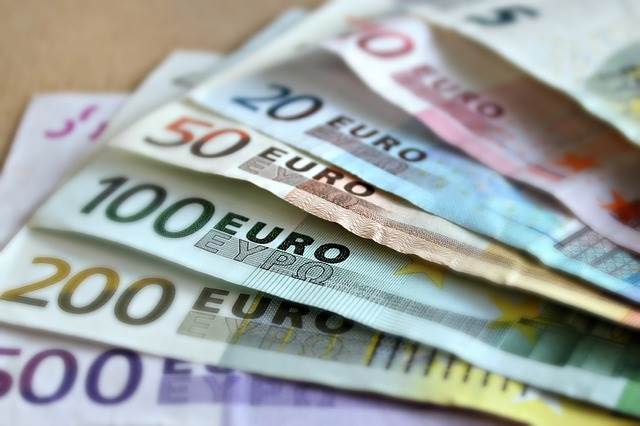 The euro has been suffering through a losing streak since the beginning of February, losing around 2.39 percent so far in the first two weeks of the month. On Friday, the common currency ended the week down 0.10 percent and hovering near a 34-week low.
The euro has been suffering through a losing streak since the beginning of February, losing around 2.39 percent so far in the first two weeks of the month. On Friday, the common currency ended the week down 0.10 percent and hovering near a 34-week low.
The poor performance of the euro is directly related to the disappointing eurozone economic data released last week, together with the effects that the coronavirus epidemic has had on the global market. The fact that the upcoming trade talks with the United Kingdom are likely to be difficult, given the latest declarations coming from both sides, is only feeding the pessimism among the traders of this currency.
On Tuesday, European Central Bank president Christine Lagarde highlighted in a speech the positive effects of the Bank's policies on the eurozone economy. The unemployment rate currently stands at 7.4 percent, its lowest level since 2008, while wages are currently above the long-term average, increasing 2.5 percent in the first three quarters of 2019.
Besides highlighting the achievements, Lagarde warned that the positive effects of an accommodative monetary policy are not only limited but are also detrimental in the long run. She echoed the constant criticism the bank's policy gets from the Germans, who criticize the effects ultra-low cash rates have on income savings, as well as mentioning the negative effects of this environment on house prices, asset valuation and risk-taking.
Just like her predecessor, Lagarde advocated for a unified fiscal framework, a proposal that is heavily rejected by the richest eurozone members policymakers and politicians.
"Other policy areas, notably fiscal and structural policies, also have to play their part," she emphasized.
In any case, her optimistic remarks seemed to aid the euro's performance, as it closed on the positive territory, gaining 0.05 percent for the session.
Unfortunately, the next day the euro gave up its gains as the short-lived optimism faded. The markets learned that the eurozone industrial production went down by 4.1 percent in 2019 after falling 1.7 percent on the previous year, driven down mostly by a falling production of capital, intermediate, energy, and durable consumer goods.
On Thursday, investors learned that the European Commission decided to leave their economic growth outlook unchanged (at 1.2 percent for 2020 and 2021) but the relatively higher attractiveness of the dollar due to the concerns related to the epidemic drove down the currency since the eurozone has a stronger economic relationship with China.
Friday brought in more bad news, this time about the state of the German economy, the most important economy in the EU. The data showed that the German gross domestic product was at 0 percent during the fourth quarter of 2019. The yearly figure showed a growth of 0.4 percent, after growing 1.5 percent in the previous year.
The eurozone growth figure was also disappointing, hitting a seven-year low mostly due to a poor economic performance by Italy and France. According to the recently released data, the 19-nation area GDP only advanced 0.1 percent in the fourth quarter of 2019, leaving the yearly rate at 0.9 percent.
The euro could find a reason to recover this week, but it will depend on the content of the ECB's monetary policy meeting accounts, and whether the IHS Markit's PMI data gives investors hopes regarding the EU’s economic situation as well as how the coronavirus situation develops.
